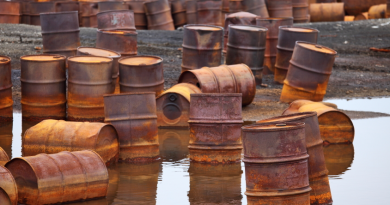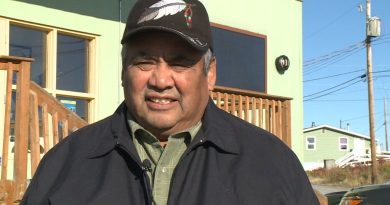Potential Canadian Northern Corridor would present unique security challenges and opportunities, say researchers

A potential Canadian Northern Corridor (CNC) would present important economic advantages for Canada, but could also present security challenges, says a paper from The Canadian Northern Corridor Research Program at The School of Public Policy, University of Calgary.
“We’ve noticed when studying large scale infrastructure development that there’s lack of understanding around how the Canadian Northern Corridor may relate to Canada’s overall security and defence agenda,” said Katharina Koch, who co-wrote the paper Northern and Arctic Security and Sovereignty: Challenges and Opportunities for a Northern Corridor with P. Whitney Lackenbauer.
“So our paper is really the first one that is considering the Canadian Northern Corridor from the security perspective.”

The idea of a Canadian Northern Corridor was put forward by Andrei Sulzenko and G. Kent Fellows in a 2016 University of Calgary School of Public Policy paper. In it, they describe a route spanning 7,000 km made up of road, rail, pipeline, electrical transmission and communication networks that would run through northern Canada and what was described as Canada’s ‘near-North.’
The project would connect Canada’s three coasts on the Atlantic Ocean, the Pacific Ocean and the Arctic Ocean.
The idea was then supported by the Standing Senate Committee on Banking, Trade and Commerce in their 2017 report National Corridor: Enhancing and Facilitating Commerce and Internal Trade.
In it, the committee described Canada’s North as long ignored and that the proposed project was ” a visionary, future-oriented infrastructure initiative” which would “…give rise to significant economic opportunities for Canada and would play an important role in the development of Canada’s northern regions.”
In recent years, the Canadian government has increasingly come under fire for lack of an overarching vision when it comes to the Arctic.
Meanwhile Russia and China are both investing heavily in the North.

China has been an Arctic Council observer country since 2013 . But its Arctic ambitions garnered worldwide attention in 2018 with a policy document that described the country as a near-Arctic state and laid out the country’s plans for massive northern investment and infrastructure, establishing a so-called ‘Polar Silk Road.’
And Russia continues to pour resources into developing its Arctic regions and promoting its Northern Sea Route.
The Canadian Northern Corridor is still at the conceptual stage and no final decisions have been made on eventual routes, distances, timelines or what governmental framework or implementation would look like if the project ever got the green light.
The paper released Wednesday is part of an ongoing scholarly examination of the initiative led by the University of Calgary School of Public policy and The Canadian Northern Corridor Research Program, with a final, cumulative report tentatively slated for release in 2025.
Indigenous participation would be key
Indigenous people are the majority population in many regions of northern Canada, and ensuring their participation in an eventual corridor project would be key, the paper found.
“We are strongly advocating for Indigenous inclusion and participation and expect, and count on, the fact that Indigenous peoples will carry a significant role in the development of the corridor,” Koch said.
“They are already key players in Canada’s defence and security strategy in the North and the Canadian Armed Forces already employs Indigenous peoples as Canadian Rangers who provide a military presence in remote communities.”
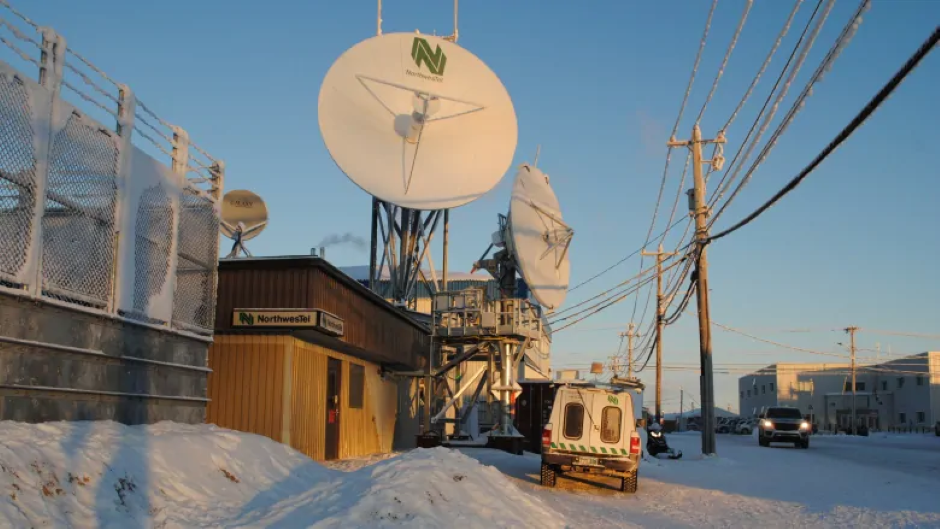
The corridor project could help reduce the ongoing infrastructure deficit in the North and could help bolster overall security in the Arctic.
“Given that Indigenous organizations and territorial governments link infrastructure deficits with security and safety challenges, it is important to highlight the benefits of infrastructure for community- and regional-level
security and safety,” the report says.
However, a rigorous evaluation of how the project would affect northern communities would need to be undertaken.
“Any CNC plans must involve thorough impact assessments of infrastructure development on remote and northern communities, including how these projects may expose them to cultural, human and environmental security risks or threats for which they may not have sufficient capacity to respond.”
Challenges to Canada over Northwest Passage?
The project would also likely redefine Canada’s position in the Arctic and raise important questions around the role of foreign investment, the paper said.
Canada considers the Northwest Passage internal waters while the U.S. considers it international waters. The two countries have managed their dispute through the 1988 Arctic Cooperation Agreement. In it, the U.S. maintains its position but agrees not to sail U.S. icebreakers in waters claimed by Canada without Ottawa’s consent.
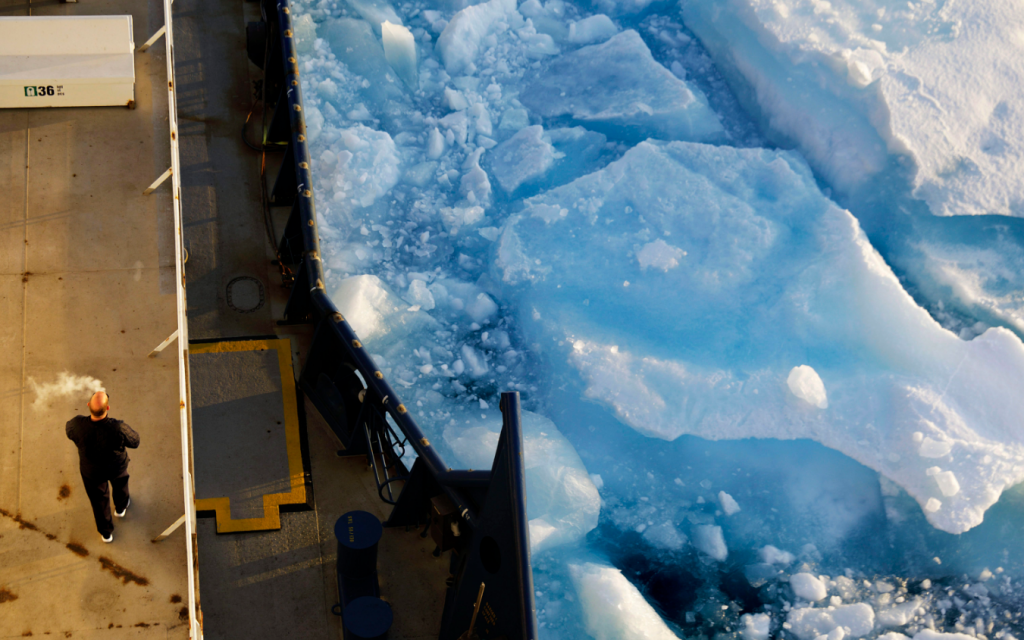
Transit voyages across the Northwest Passage are still rare, but activity on the route increased 44 per cent from 2013 to 2019 and climate change is expected to make the route increasingly accessible.
Development of the corridor project would increasing put the region in the spotlight.
“Russia, China and the United States are the three key geopolitical actors in the Arctic and we absolutely expect that the Canadian Northern Corridor will generate a lot of international attention and we don’t know how it would be perceived,” Koch said.
Canada’s legal positions could also be opposed.
“Growing international interest in Arctic waters also raises the possibility of non-Arctic states and other actors challenging well-established Canadian legal positions on the status of Canada’s Arctic waters,” the report says. “According to this logic, the Northwest Passage can no longer be viewed or managed as a bilateral Canada-U.S. issue,”
Security implications of foreign investment
Canada has only limited economic activity and investment in the Arctic, meaning foreign investment, especially from China, could have an important role to play in resource and infrastructure development, the report said, but this could also raise security concerns.
“Building essential infrastructure such as roadways, especially in the North, is expensive, so having foreign investment, would of course be helpful, and also to support shovel-ready projects,” Koch said.
“But at the same time, the Canadian Northern Corridor, and the related infrastructure, could be seen as so very strategically important and essential, and that it can be used for surveillance and defence and deterrence, that maybe certain infrastructure projects would fail such security reviews.”
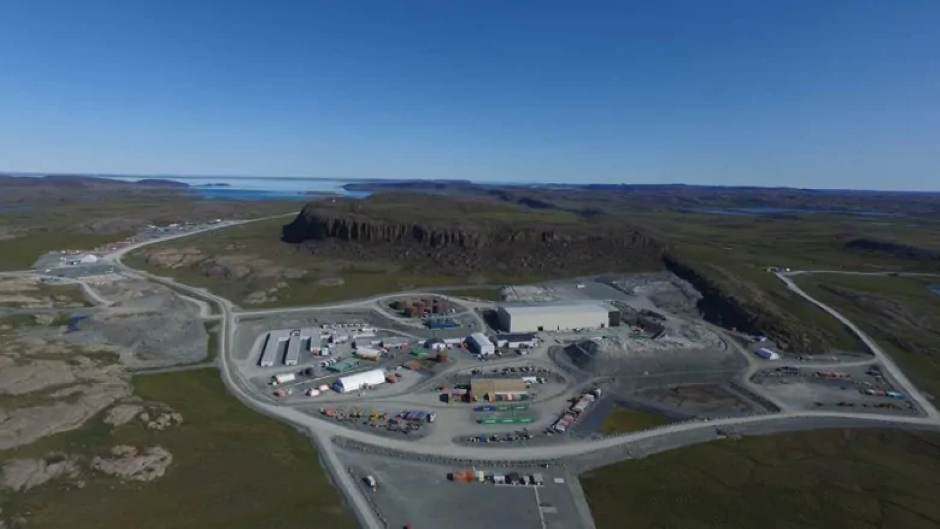
Such concerns could also affect Canada’s relations with its allies, the report says.
“The challenge will not only entail attracting foreign investors but also creating appropriate systems and measures to manage them and to ensure they do not undermine national security or broader Canadian security relations with key
allies,” the report said.
“There is indeed a risk that enhanced investment, for example from China, can undermine Canada’s security co-operation with other states in the sense that foreign entities could own parts of its northern essential infrastructure, thus affecting Canada’s integrity on a global scale.”
A holistic perspective on security
Koch says the main advice to policy makers, should the project go ahead, would be the importance of taking a holistic view of the Canadian Northern Corridor’s security implications.
“If the Canadian Northern Corridor project becomes reality, policy makers will really need to consider all aspects of security and defence and how integrated they are with essential infrastructure development,” she said.
“This kind of security and defence really goes beyond traditional mechanisms of surveillance and deterrence and includes elements such as a focus on human security and environmental stewardship. This holistic perspective involves all different types of security, for example food security and northern Indigenous communities, and needs to go beyond this traditional view of just defending national territory.”
Write to Eilís at eilis.quinn@cbc.ca
Related stories from around the North:
Canada: Ottawa blocks Chinese takeover of Nunavut gold mine project after national security review, CBC News
China: China, Russia singled out in new U.S. Arctic defense strategy, Eye on the Arctic
Iceland: Nordics should aim for common approach to China’s Arctic involvement says report, Eye on the Arctic
Russia: National security chief says Russia must bolster its Arctic military, The Independent Barents Observer
United States: Putin, Biden talk Northern Sea Route, The Independent Barents Observer


